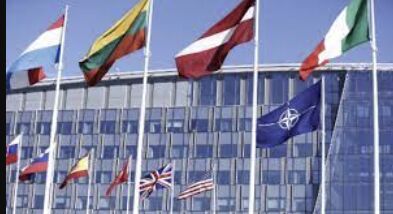NATO Halts Key Cold War-Era Security Treaty in Response to Russia's Withdrawal: Upholding Security and Stability in Europe at Stake
NATO formally suspends Cold War-era security treaty in response to Russia's withdrawal, aiming to address the imbalance and uphold security and stability in Europe. Future relations between NATO and Russia remain uncertain.
In a response to Russia's withdrawal from a key Cold War-era security treaty, NATO announced on Tuesday the formal suspension of the agreement. The alliance stated that its members who had signed the treaty will freeze their participation in the pact. The Treaty of Conventional Armed Forces in Europe, which was aimed at preventing the massing of forces by Cold War rivals near mutual borders, had been signed by the majority of NATO's 31 allies in November 1990, but was not fully ratified until two years later.
The decision to suspend the operation of the CFE Treaty came after Russia's foreign ministry declared the finalization of Moscow's withdrawal. NATO emphasized that it deemed it unsustainable for Allied State Parties to abide by the treaty while Russia did not. Accordingly, allies who had signed the agreement intend to suspend its operation for as long as necessary, in accordance with their rights under international law. This decision garnered full support from all NATO Allies.
NATO reiterated its commitment to reducing military risk, as well as preventing misperceptions and conflicts. The alliance emphasized the importance of maintaining stability and security in the region, particularly in light of Russia's withdrawal from the treaty. By suspending the agreement, NATO aims to address the imbalance created by Russia's non-compliance and send a clear message regarding the significance of abiding by international commitments. While NATO's decision to suspend the CFE Treaty reflects the seriousness of the situation, it also highlights the alliance's determination to uphold security and stability in Europe. As tensions between NATO and Russia continue to escalate, it remains to be seen how this move will impact future relations between the two sides.




